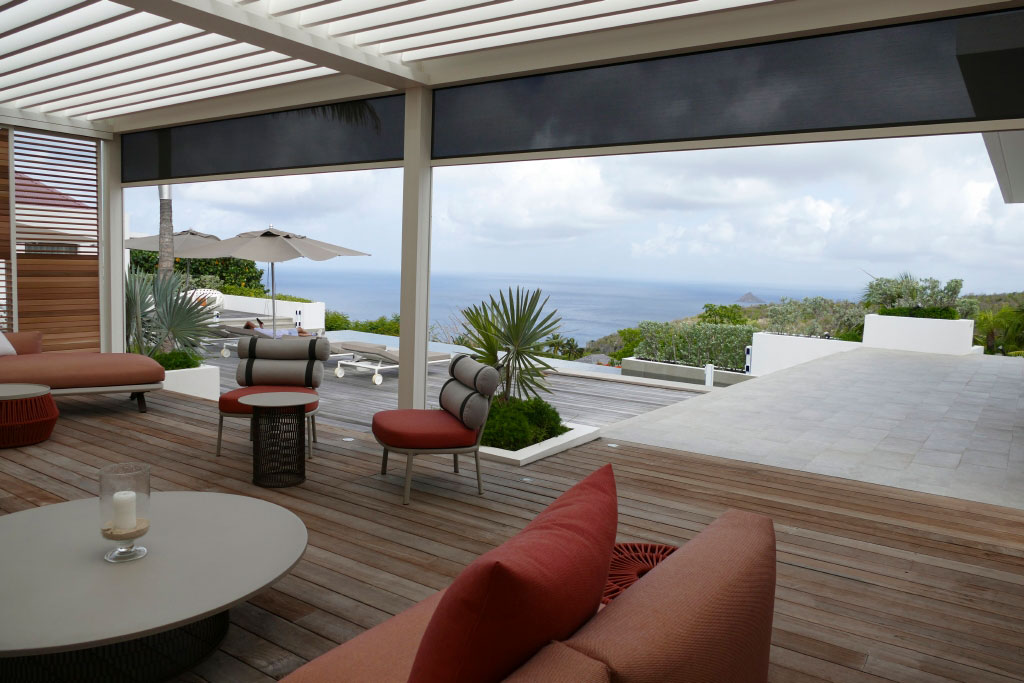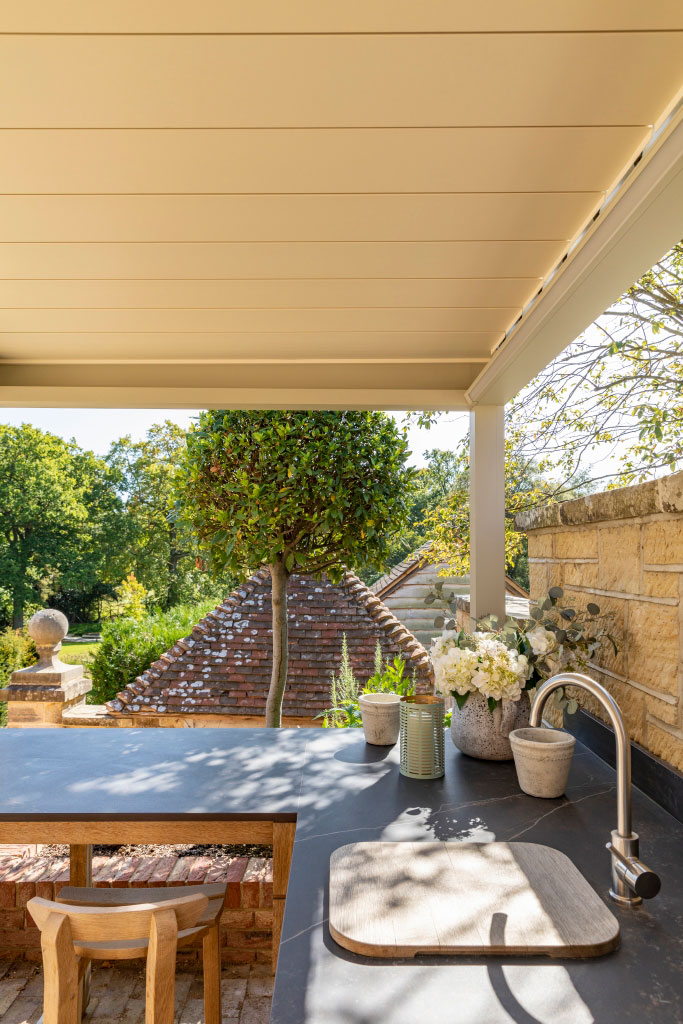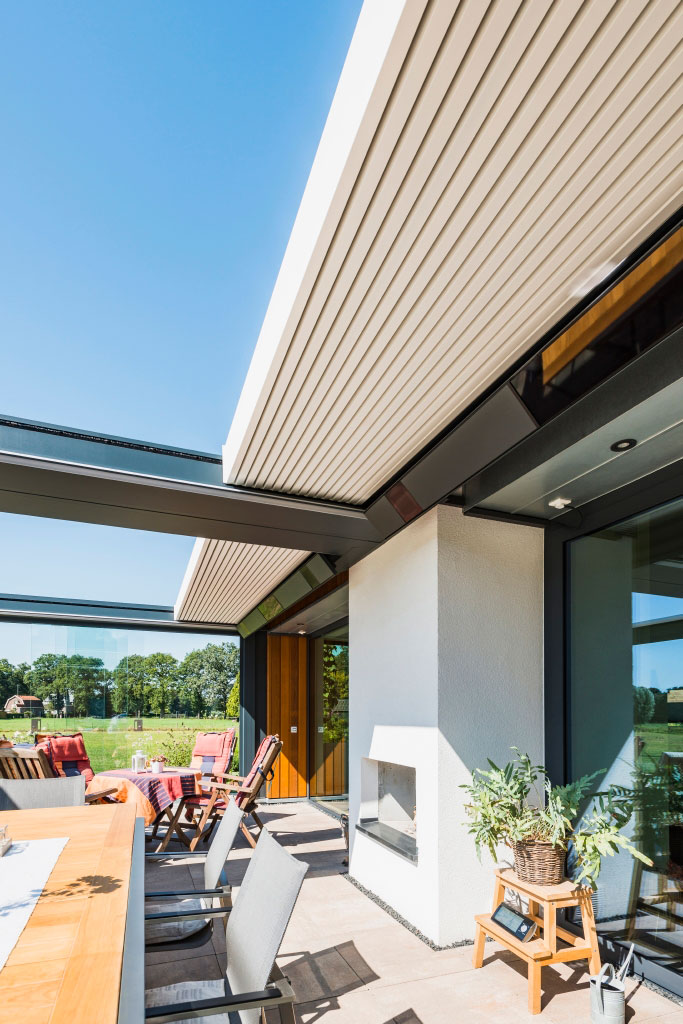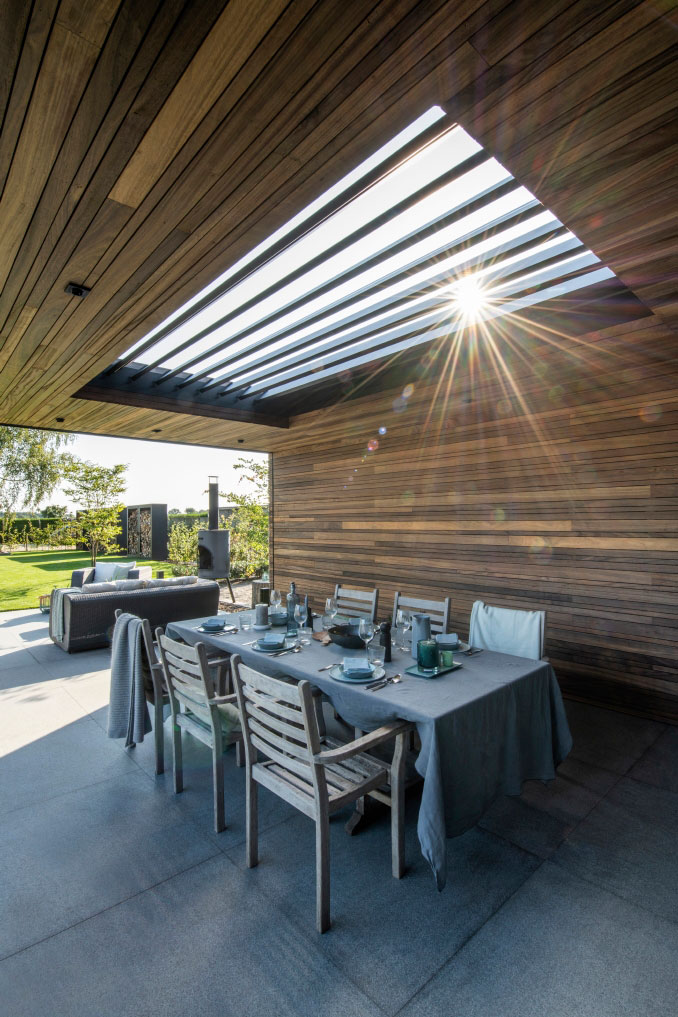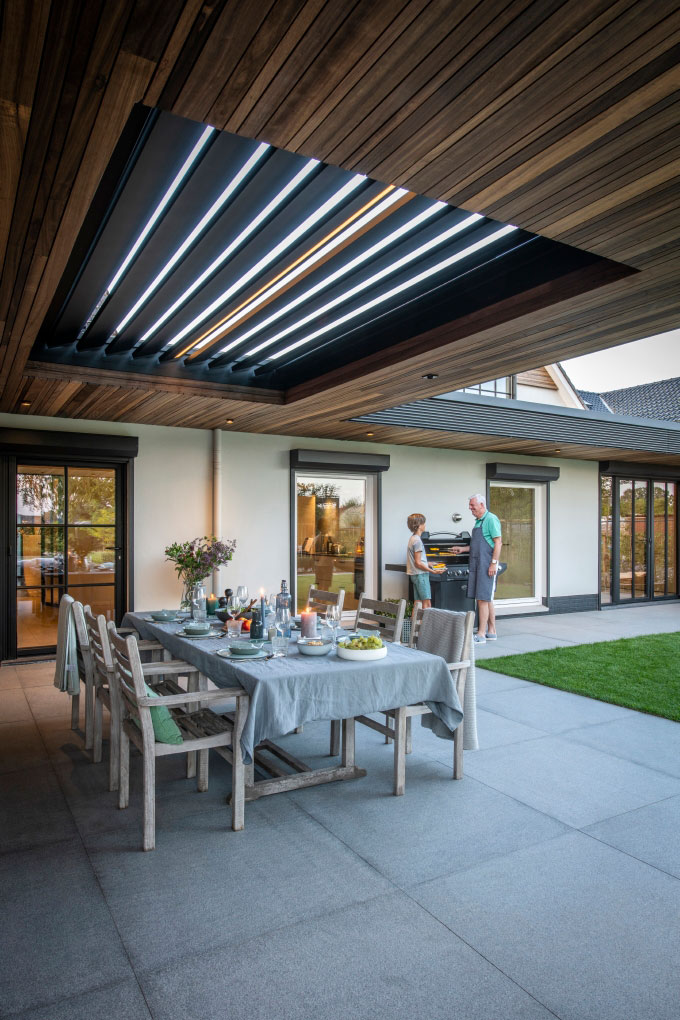Story at a glance:
- Renson’s aluminum pergolas are made from 100% recyclable materials in a way that minimizes waste.
- Outdoor blinds can be installed on the outside of windows, pergolas, balconies, or as curtain walls.
- Loggia doors are a beautiful design addition that make the most of minimalist design.
Upgrading an outdoor living space? Creating an idyllic outdoor oasis starts with modern outdoor design that embraces nature but allows control over the elements.
“You have to create more outdoor control to bring people outside,” says Peter Chlebogiannis, marketing manager at outdoors, sun protection, and ventilation manufacturer Renson. “You can achieve 100% control of an outdoor space. And when you do you make it easier for people to access the outdoors and continue modern life outside.”
Here’s what designers can do to improve and elevate any outdoor space.
1. Include an aluminum pergola.
- Photo courtesy of Renson
- Photo courtesy of Renson
The benefits of aluminum pergolas are many, from being made from 100% recyclable materials in a sustainable process that emphasizes minimal waste to its ability to incorporate high-end European design. But perhaps the biggest benefit is that pergolas increase access to the outdoors.
“If you have a backyard that’s all grass and some chairs, you’re not going to really realize how much you’re underutilizing it,” Chlebogiannis says. “Instead of opening up a window to get fresh air, pergolas allow you to create that screen around you outside without needing to limit the actual elements outside.”
Whether you’re designing a residential or commercial outdoor space, aluminum pergolas provide a sustainable, flexible outdoor sanctuary that can be used independent of the weather. Pergolas put the focus on exactly what matters—bringing people back to nature—with the added bonus of giving occupants control over their outdoor space.
2. Add outdoor blinds.
Outdoor blinds are made of sun-resistant fabric and can be installed on the outside of windows, pergolas, balconies, or as curtain walls. They prevent the sun’s heat from reaching any window glass or the interior of a space, which aids in lowering a building’s energy index, Chlebogiannis says.
Unlike traditional blinds or solar control shading that block out all light, outdoor blinds allow you to see outside and let optimal daylight enter a space while closed. This means they offer the best of both worlds: a clear view to the outdoors without overexposure to heat from the sun. “Outdoor shades are a huge asset, as they offer privacy and also keep out bugs, sun, and stray rain.”
3. Separate spaces with loggia doors.
Loggia doors are a design element that have been around for thousands of years. Renson’s modern loggia doors come in a variety of designs that emphasize minimalist design.
“Loggia doors are really good at separating indoor-outdoor spaces,” Chlebogiannis says. “Their minimalistic design creates privacy without having an entire door there. The door can more or less stylistically disappear for you.”
The fixed aluminum frame for each door panel can be installed with canvas fabric or blades. The blades can be manually adjusted to allow sunlight through or not—yet another way to offer sun protection and control heat, light, and the elements in outdoor spaces.
4. Consider wall cladding.
Aluminum cladding like Renson’s Linarte provides a breathable barrier to outdoor spaces that still prioritizes privacy.
“You can have a wall with absolutely no way to see through it but still allow breathable air into a space,” Chlebogiannis says. “It’s all about allowing fresh air and sunlight to get in where you want it, when you want it.”
On top of airflow and sunlight control, cladding also adds a modern, architectural design element to any facade. And beyond aesthetics, you can integrate LED lighting into the cladding as an ambient and functional lighting solution.
5. Incorporate a louvered roof.
- Photo courtesy of Renson
- Photo courtesy of Renson
A louvered roof includes a series of connected, motorized aluminum louvers that rotate and change position so you can control the amount of light that comes into an outdoor living space. The louvers can be included in pergolas or placed into an existing roof line.
When the louvers are closed, they offer protection from the elements, which means you can still sit outside without fear of getting wet.
“In other words, you have the ultimate level of control over the indoor climate of your outdoor space,” Chlebogiannis says.

